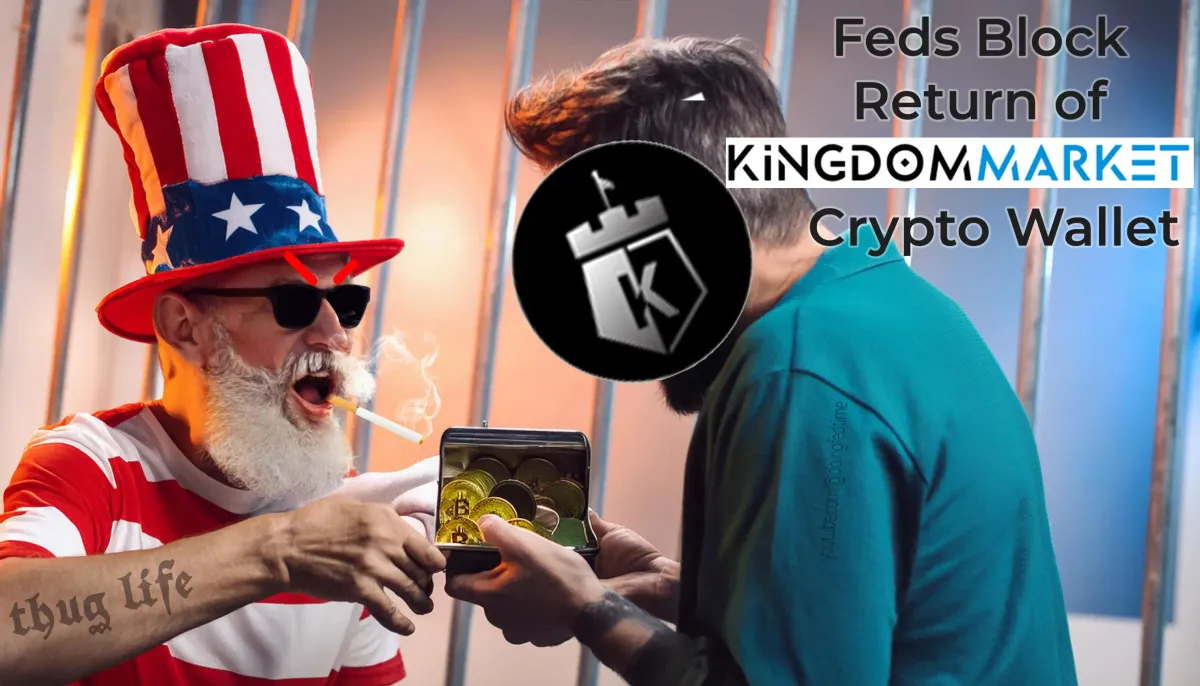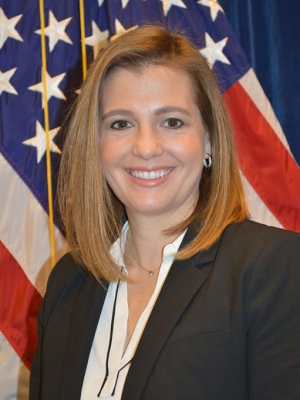Feds Block Return of Kingdom Market Crypto Wallet
On June 20, 2024, the United States government filed a response opposing Alan Bill's motion to have his Trezor hardware wallet returned.

On June 20, 2024, the United States government filed a response opposing Alan Bill's motion to have his Trezor hardware wallet returned. Bill, who faces charges of drug trafficking conspiracy and money laundering conspiracy, argues that the wallet was unlawfully seized in December 2023 upon his return to Newark, New Jersey, from his honeymoon.
Bill filed a Rule 41(g) motion, which allows individuals to request the return of unlawfully seized property. He contends that the Trezor wallet, used for securely storing cryptocurrency, should be returned. The U.S. government, however, insists that the wallet is crucial evidence in the ongoing investigation.
Kingdom Market Connection
The prosecution argues that the Trezor wallet links Bill to Kingdom Market, a darknet marketplace notorious for selling illegal drugs, stolen personal information, counterfeit currencies, and malware. Authorities found a receipt showing Bill purchased the Trezor wallet in 2020, and his email accounts contained a seed phrase linked to the wallet named "Cicinka."
Cryptocurrency Transactions
Investigations revealed that this wallet received multiple cryptocurrency payments from wallets associated with Kingdom Market, tied to an alias used by Bill. This suggests his direct involvement in the marketplace's illegal activities. The government aims to access private crypto keys stored on the Trezor, potentially revealing criminal proceeds.
Charges Against Alan Bill
Bill, a 30-year-old Slovakian from Bratislava, was indicted on December 14 in U.S. District Court in St. Louis. The indictment included ten felony charges, such as conspiracy to distribute controlled substances, distribution of controlled substances, conspiracy to commit identity theft, identity theft, aggravated identity theft, misuse of a passport, and money laundering conspiracy. He was arrested on December 15 at Newark Liberty International Airport by FBI and Homeland Security agents.
Operation of Kingdom Market
Bill, also known as "Vend0r" and "KingdomOfficial," allegedly helped run Kingdom Market, which had over 25,000 active listings. The market, operational since March 2021, sold illegal drugs, unlicensed pharmaceuticals, stolen identities, credit card information, counterfeit money, malware, and fraudulent identity documents.
U.S. Attorney's Statement
U.S. Attorney Sayler A. Fleming declared:
"The use of darknet marketplaces and cryptocurrency will not protect dangerous criminals from law enforcement efforts to combat the flow of narcotics and other illegal activities."
This statement is not only misleading but also a blatant display of hypocrisy. Government officials like Fleming have repeatedly made similar claims, attempting to portray themselves as effective enforcers of justice while ignoring their systemic failures.

Take, for example, the U.S. Attorney's Office's handling of darknet markets over the past decade. Despite the shutdowns of Silk Road, AlphaBay, and Hansa, new markets continue to emerge, often more resilient and decentralized. The repetitive nature of these statements from U.S. Attorneys, without substantial long-term success, reveals them as mere talking points rather than factual assessments. Statistically, only a fraction of illicit darknet activities are intercepted, making Fleming's claim factually incorrect and overly simplistic.
IRS Criminal Investigation's Statement
Melissa McFadden from IRS Criminal Investigation echoed Fleming, emphasizing the importance of international collaboration in tackling darknet activities. The irony here is striking. The IRS, an agency infamous for losing track of trillions of dollars, positions itself as a capable entity to disrupt sophisticated darknet operations.
For instance, a 2016 audit by the Department of Defense revealed that $6.5 trillion in spending could not be accounted for. How can an agency that fails to monitor its finances claim to efficiently track and dismantle intricate darknet marketplaces?
This isn't an isolated incident. In 2020, the Treasury Department admitted that it couldn't account for $1.5 trillion due to "accounting errors." McFadden's assertion that the IRS can effectively combat darknet crime is laughable when juxtaposed with these colossal failures. If the IRS can't manage its own books, how can it credibly claim to manage the digital shadows of the darknet?
Real-World Examples and Statistical Evidence
The U.S. government's War on Drugs is a prime example of its ineffective and hypocritical enforcement efforts. Despite spending over $1 trillion since the 1970s, drug availability and use have not significantly decreased. The Drug Policy Alliance reports that, despite aggressive law enforcement, drug overdose rates have continued to climb, with over 70,000 deaths in 2019 alone. This failure underlines the inefficacy of broad, aggressive strategies similar to those used against darknet markets.
Cryptocurrency Misconceptions
Cryptocurrency, often demonized by law enforcement, is not the criminal haven it is made out to be. A 2020 Chainalysis report found that illicit activity accounted for just 0.34% of all cryptocurrency transaction volume. Compare this to the global shadow economy, which the International Monetary Fund estimates at 14-15% of the world's GDP. The persistent narrative pushed by officials like Fleming and McFadden ignores these facts, portraying cryptocurrency as a primary tool for criminals when it is predominantly used for legitimate purposes.
Critique of Government Overreach
However, the government's heavy-handed approach raises questions about privacy and the extent of law enforcement's reach into digital lives. Bill's claims of unlawful seizure, despite the government's insistence on retaining the Trezor wallet, suggest a potentially overzealous effort to clamp down on cryptocurrency use and darknet operations.
The government's refusal to return Bill's Trezor wallet shows the critical role digital evidence plays in modern investigations. This case could set significant precedents for handling digital assets in future legal contexts involving cybercrime and cryptocurrency. While the government's determination to combat illegal activities is clear, it is essential to balance this with respect for individual privacy and lawful procedures. After all, this isn't the UK where crypto is taken just because it can be...isn't the UK were crypto is taken, Right...
In the end, the outcome of this case will not only impact Alan Bill but also shape the future landscape of digital rights and law enforcement's powers in the digital age.




